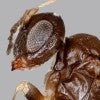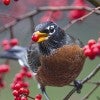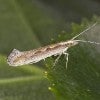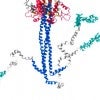Bacterial ‘bully’ could improve food production
February 14, 2022
Lactic acid bacteria that thrive in many organisms, including humans, employ a hybrid metabolism that combines respiration and fermentation to give it an advantage over competitors. Researchers say the discovery could lead to enhanced techniques for food and chemical production.
Biologists discover new insect species at Rice University
January 23, 2022
Newly discovered insect Neuroterus valhalla is barely a millimeter long and spends 11 months of the year locked in a crypt. It’s legendary sounding name stems from where it was discovered: A tree outside Rice’s graduate student pub Valhalla.
Lost birds and mammals spell doom for some plants
January 12, 2022
In one of the first studies of its kind, researchers have gauged how biodiversity loss of birds and mammals will impact plants’ chances of adapting to human-induced climate warming.
Awards boost biomed advances
December 16, 2021
Four faculty members and their collaborators win Advanced Research Projects Agency for Health seed grants.
NSF grant supports study of cells’ early decisions
December 7, 2021
Rice University receives National Science Foundation support to build a model of cell differentiation during the earliest stage of life. The model could help improve researchers’ ability to direct stem cells to a given fate.
Crop-eating moths will flourish as climate warms
September 13, 2021
Climate change in this century will allow one of the world's costliest agricultural pests, the diamondback moth, to both thrive year-round and rapidly evolve resistance to pesticides in large parts of the United States, Europe and China where it previously died each winter, according to a study by U.S. and Chinese researchers.















